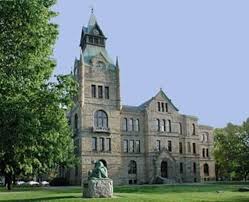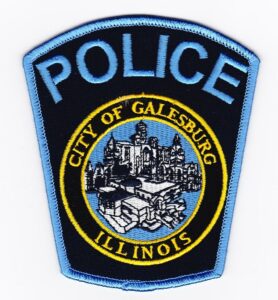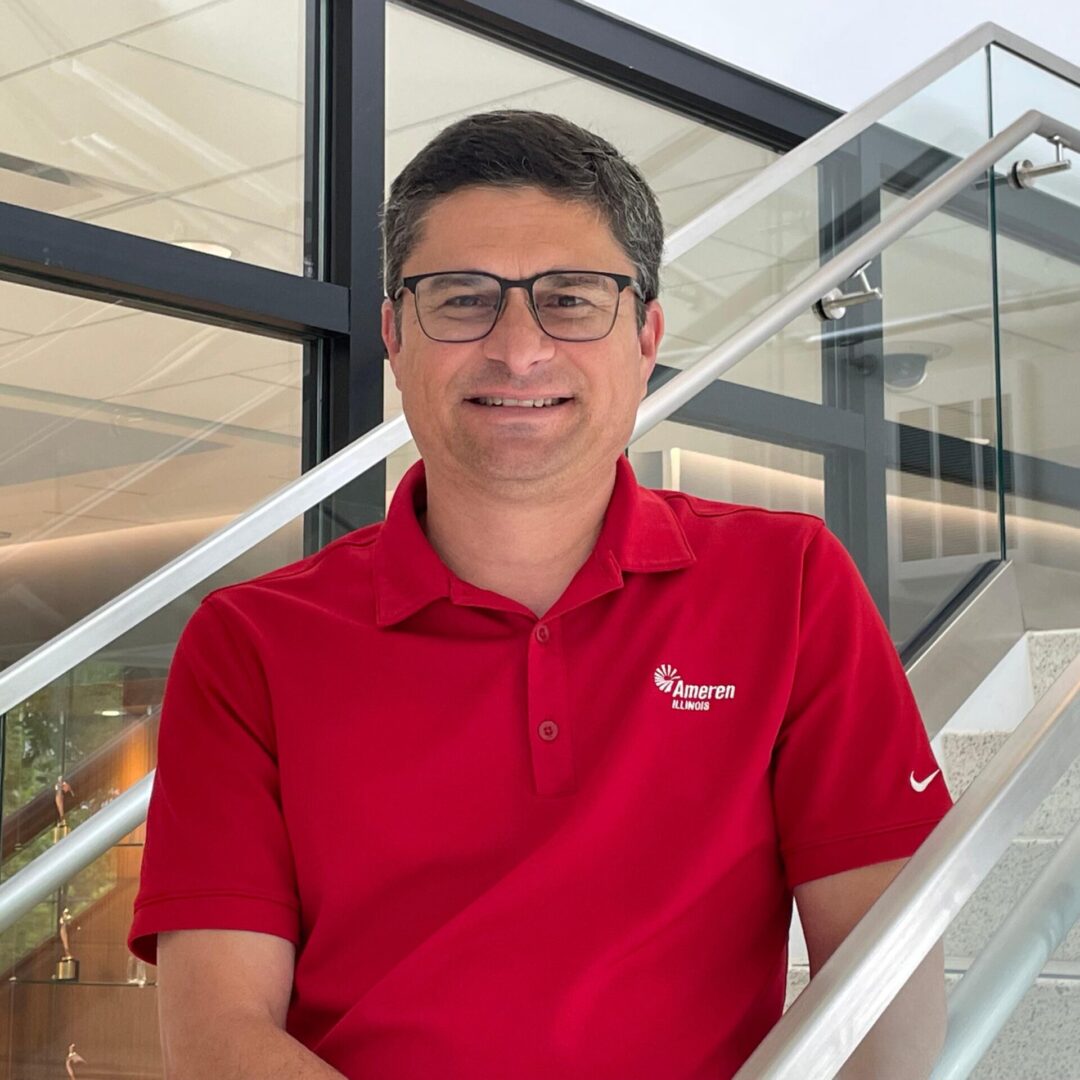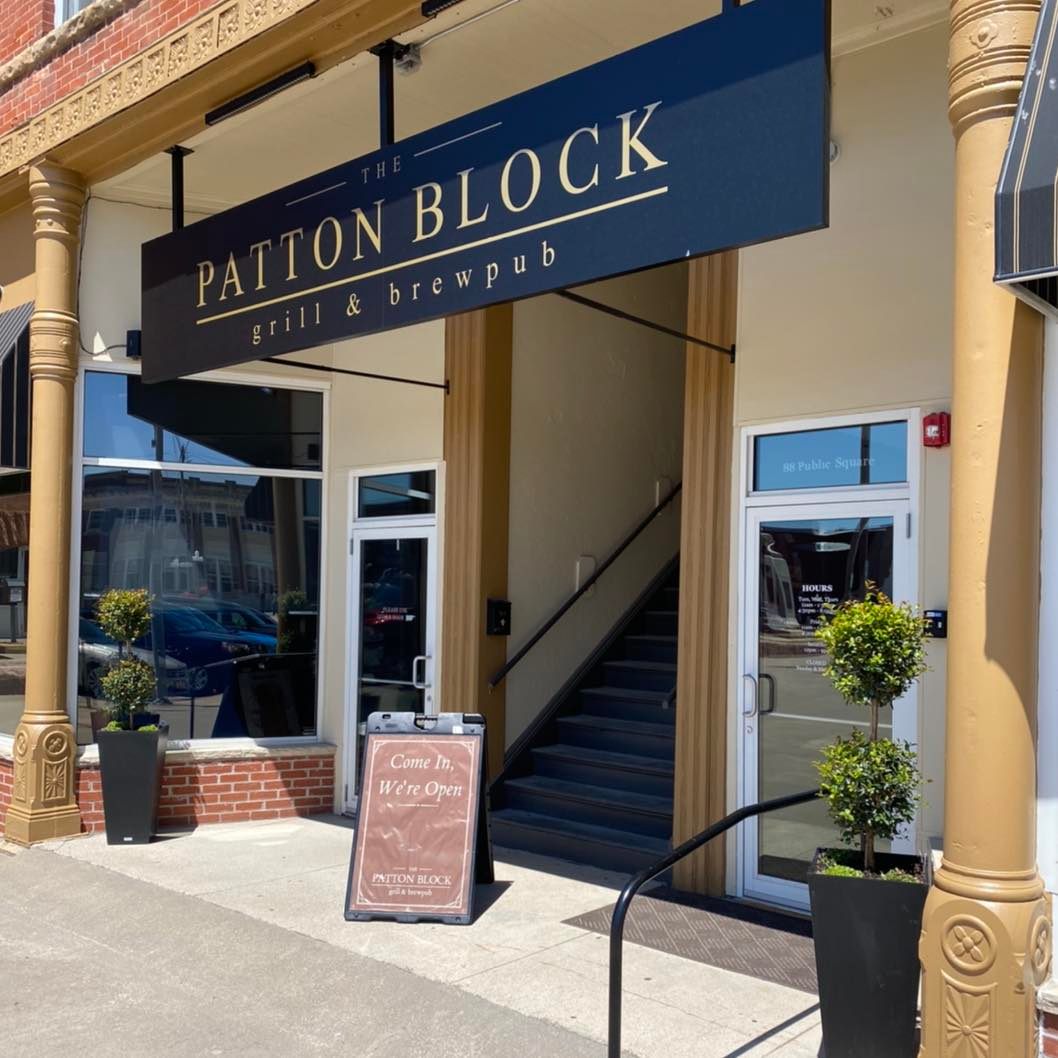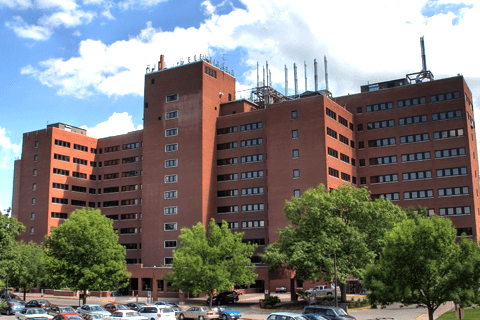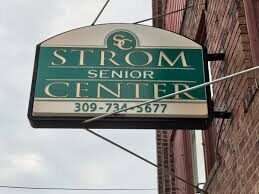“It’s been a long, a long time comin’, but I know a change gonna come. Oh, yes it will.” — Sam Cooke
On what was called “an incredibly historic day for our campus community,” Monmouth College dedicated on Friday afternoon its first building after a person of color.
The College dedicated the Champion Miller Center for Student Equity, Inclusion and Community. The building, 727 East Broadway, has been known by several names over its existence, most recently the Center for Intercultural Life.
Because of uncertain weather, the dedication ceremony was held inside the Dahl Chapel and Auditorium, and the ribbon-cutting was held on the steps of the Champion Miller Center.
With the name change came a change in a title for Monmouth staff member Regina Johnson ’01. She is now the College’s director of student equity, inclusion and community.
“There are so many words that could describe how I am feeling today,” Johnson said in a message to the campus community. “Never in a million years would I have thought my college research (on 19th century Monmouth resident Champion Miller) would become more than just words, facts and dates written on pieces of paper.”
Born into enslavement, purchasing freedom for himself and then his family, taught to read and write by the Moffet family, Champion Miller became a pillar of the Monmouth community. Alongside his brother, Richard Murphy, and Monmouth College’s first president, David Wallace, Miller created the First African Church of Monmouth – “an accomplishment nothing short of spectacular for a Black man of that time,” said Johnson.
Among the findings from Johnson’s research was a line from Miller’s 1882 obituary: “No man in Monmouth is more respected.”
“He led me to his inspiring story, and he changed me all those years ago,” said Johnson. “He defied odds most of us would find impossible to understand.”
Other speakers who took part in the dedication ceremony included Monmouth President Clarence R. Wyatt, the Rev. Charles Burton ’92, Monmouth Board of Trustees member Harvey Echols ’81 and student Elizabeth Guzman ’24 of Chicago. Gabriela Madu ’23 of Montego Bay, Jamaica, and Mark Thigpen ’22 of Chicago sang Sam Cooke’s “A Change Is Gonna Come.”
Wyatt said there have been “burdens on too many Americans for too many generations. We have an obligation and an opportunity to lift those burdens. As we dedicate the Champion Miller Center today, we should also dedicate ourselves to the example of Champion Miller and dedicate ourselves to be champions for all.”
During his time as a Monmouth student, Echols and his good friend believed – mistakenly, as they eventually learned – that they were trailblazers as the first two students of color to serve as head residents on campus. It turns out, said Echols, that they stood on the shoulders of giants who were students a few years before them.
Similarly, said Echols, Champion Miller is a giant upon whose shoulders we stand today.
“He was the absolute trailblazer,” said Echols.
“This place reminds me that I am not alone,” said Guzman of the support she’s received from other students in the facility, which she called her second home. “I hope the Champion Miller Center attracts others to this community, and hopefully they can find a home here, too.”
The Champion Miller Center for Student Equity, Inclusion and Community was founded to provide an array of academic and support services, fellowship and inspiration to students of all ethnicities and backgrounds, particularly disadvantaged, marginalized and first-generation college students.
“Today and for many, many days and years to come, the Champion Miller Center is a space and opportunity for all students and, importantly, for our most marginalized students, to feel safe, to grow and to challenge themselves,” said Johnson. “If we don’t keep learning, we will never be capable of real change. I call each and every one of us to commit to be ‘the change’ and to living what it means to be a champion for change.”
Founded in 1853 and affiliated with the Presbyterian Church (U.S.A.), Monmouth College provides a transformative educational experience within a caring community of learners. A residential liberal arts college that is the birthplace of the women’s fraternity movement, Monmouth College empowers students to realize their full potential, live meaningful lives, pursue successful careers, and shape their communities and the world through service and leadership.
***Report Courtesy of Monmouth College***





